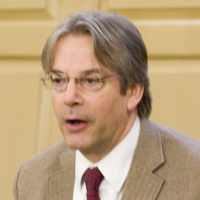A World Safe for Democracy: Liberal Internationalism and the Crises of Global Order
For two hundred years, the grand project of liberal internationalism has been to build a world order that is open, loosely rules-based, and oriented toward progressive ideas. Today this project is in crisis, threatened from the outside by illiberal challengers and from the inside by nationalist-populist movements. A World Safe for Democracy offers the first full account of liberal internationalism’s long journey from its nineteenth-century roots, through the great upheavals of the 20th century and to today’s fractured political moment. Along the way, the book engages both realist and revisionist-left critics, from E.H. Carr and John Mearsheimer to critical theorists of liberalism and empire. Liberal internationalism has built its projects on both imperial and Westphalian foundations, and its project were carried into the 20th century on the backs of other grand forces – nationalism, capitalism, empire and imperialism, great power rivalry, and Anglo-American hegemony. This has been both its strength and weakness. No liberal state has ever acted in international affairs solely on the basis of liberal principles. But the spaces opened up within even a deeply flawed liberal international order create opportunities for political struggles that can bring the order closer to its founding ideals. The book goes on to talk about the post-1989 era and offers an explanation for what worked and what did not. Creating an international “space” for liberal democracy, preserving rights and protections within and between countries, and balancing conflicting values such as liberty and equality, openness and social solidarity, and sovereignty and interdependence—these are the guiding aims that have propelled liberal internationalism through the upheavals of the past two centuries. Ikenberry argues that in a twenty-first century marked by rising economic and security interdependence, liberal internationalism—reformed and reimagined—remains the most viable project to protect liberal democracy.
G. John Ikenberry is the Albert G. Milbank Professor of Politics and International Affairs at Princeton University in the Department of Politics and the Princeton School of Public and International Affairs. He is also Co-Director of Princeton’s Center for International Security Studies. Ikenberry is also a Global Eminence Scholar at Kyung Hee University in Seoul, Korea. In 2013-2014 Ikenberry was the 72nd Eastman Visiting Professor at Balliol College, Oxford. Professor Ikenberry is the author of seven books, including Liberal Leviathan: The Origins, Crisis, and Transformation of the American System (Princeton, 2011). His book, After Victory: Institutions, Strategic Restraint, and the Rebuilding of Order after Major Wars (Princeton, 2001), won the 2002 Schroeder-Jervis Award presented by the American Political Science Association for the best book in international history and politics. Ikenberry is also the editor or co-editor of fourteen books and has authored 130 journal articles, essays, and book chapters. Professor Ikenberry is the co-director of the Princeton Project on National Security. Among his many activities, Professor Ikenberry served as a member of the Policy Planning Staff in 1991-92, as a member of an advisory group at the State Department in 2003-04, and as a member of the Council on Foreign Relations Task Force on U.S.-European relations, the so-called Kissinger-Summers commission.
The Washington History Seminar is co-chaired by Eric Arnesen (George Washington University and the National History Center) and Christian Ostermann (Woodrow Wilson Center) and is organized jointly by the National History Center of the American Historical Association and the Woodrow Wilson Center's History and Public Policy Program. It meets weekly during the academic year. The seminar thanks its anonymous individual donors and institutional partners (the George Washington University History Department and the Lepage Center for History in the Public Interest) for their continued support.
Speaker

Moderators

Woodrow Wilson Center

Professor of History, The George Washington University. Director, National History Center of the American Historical Association.
Panelist

Hosted By

History and Public Policy Program
A leader in making key foreign policy records accessible and fostering informed scholarship, analysis, and discussion on international affairs, past and present. Read more
